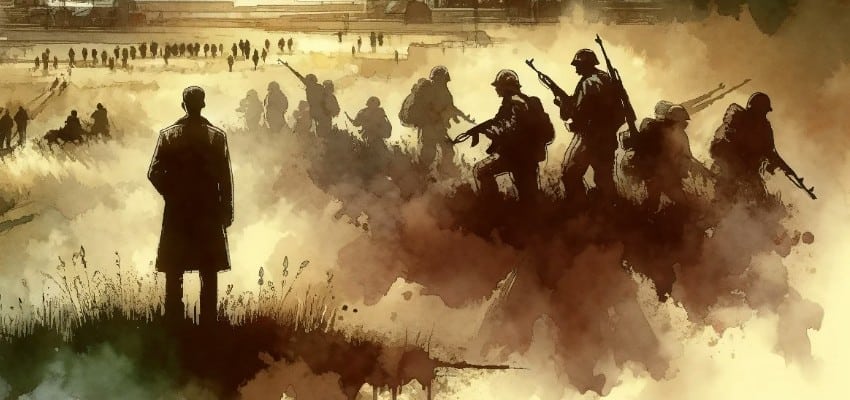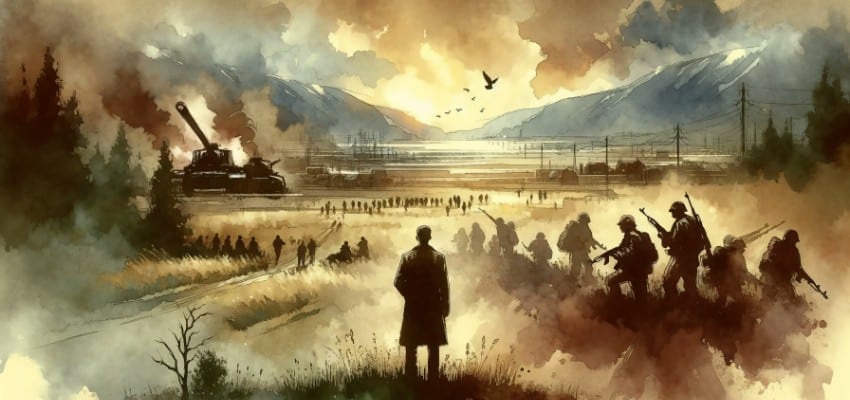Source Note: One of the most accurate and detailed sources for ongoing updates on the Ukraine crisis is the Russian Offensive Campaign Assessment from the Institute for the Study of War. The Institute for the Study of War (ISW) is a 501(c)(3) organization and produces strictly non-partisan, non-ideological, fact-based research. ISW seeks to promote an informed understanding of war and military affairs through comprehensive, independent, and accessible open-source research and analysis. ISW’s research is made available to the general public, military practitioners, policymakers, and media members. Providing a daily synthesis of key events related to the Russian aggression against Ukraine, ISW updates may benefit investigators and litigators as they follow the business, information technology, and legal trends and trajectories impacted by and stemming from the current Russo-Ukrainian conflict.
For those seeking to grasp the full scope of this evolving landscape, the complete updates from the Institute for the Study of War serve as an invaluable resource.
Content Assessment: Winds of War and Whispers of Dissent: Ukraine's Fight and Navalny's Fate
Information - 92%
Insight - 90%
Relevance - 91%
Objectivity - 93%
Authority - 95%
92%
Excellent
A short percentage-based assessment of the qualitative benefit expressed as a percentage of positive reception of the recent update on the Russo-Ukrainian conflict titled, "Winds of War and Whispers of Dissent: Ukraine's Fight and Navalny's Fate."
Russo-Ukrainian Conflict Update*
Winds of War and Whispers of Dissent: Ukraine’s Fight and Navalny’s Fate
ComplexDiscovery Staff
In the shadow of Ukraine’s embattled frontlines and the corridors of power in Moscow, the dynamics of a conflict that has gripped Eastern Europe unfold alongside the chilling narrative of Alexei Navalny’s reported death. This tale of strategic maneuvers, international alliances, and political dissent encapsulates the turbulent state of affairs that defines the current geopolitical landscape.
Ukraine’s Strategic Withdrawal and the Encroaching Russian Forces
The decision by Ukrainian forces to strategically withdraw from Avdiivka underscores a calculated effort to preserve manpower in the face of Russian advancements. This maneuver, aimed at avoiding potential encirclement, highlights the tactical challenges faced by Kyiv amidst an increasingly aggressive Russian offensive. The response from Moscow, characterized by a concerted push to disrupt Ukrainian logistics and fortify positions around Avdiivka, signals a deepening of hostilities that complicates the path to peace.
International Solidarity: The German and French Lifelines
In a significant show of support, Germany and France have each forged bilateral security agreements with Ukraine, pledging extensive military, financial, and humanitarian aid. These commitments, ranging from the provision of advanced weaponry to financial backing, underscore a collective European stance against Russian aggression. The strategic implications of such support extend beyond the immediate conflict, bolstering Ukraine’s defense capabilities while signaling a unified front against the Kremlin’s militaristic ambitions.
NATO’s Strategic Posture and the Perception of the Russian Threat
As NATO recalibrates its assessment of the Russian military threat, the alliance’s strategic response evolves to meet the challenges posed by Moscow’s remaining capabilities. Increased defense investments and a nuanced understanding of Russia’s potential for aggression reflect the complexity of the security environment in Eastern Europe. This strategic adjustment within NATO circles speaks to the broader concerns over regional stability and the imperative of maintaining a robust deterrent posture.
The Reported Death of Alexei Navalny: A Catalyst for Controversy
The reported death of Alexei Navalny, a prominent figure in Russian opposition politics, has sent shockwaves through Russian society and the international community. Navalny’s demise under suspicious circumstances raises critical questions about the Kremlin’s tolerance for dissent and the state of political freedom in Russia. The muted response within Russia, contrasted with the public outcry and international condemnation, illustrates the fraught nature of Russian domestic politics and the Kremlin’s grip on power.
Russian Society’s Apathetic Veil and the Shadows of War
Sociological data suggest a pervasive apathy among the Russian populace towards the conflict in Ukraine, a sentiment that enables the Kremlin to pursue its military objectives with minimal domestic backlash. However, beneath this veneer of disengagement lies a silent majority potentially affected by the war’s toll on Russian servicemen. The concept of “victory” in Ukraine, as propagated by Moscow, finds little resonance among a populace that sees little personal benefit from the conflict’s continuation.
Revisiting the Battlefield and Diplomatic Fronts
As the conflict in Ukraine rages on, the strategic decisions made by Ukrainian commanders, the international community’s rallying support, and the Kremlin’s domestic and international posturing converge to define the contours of the crisis. The narrative of Alexei Navalny’s reported death intertwines with these developments, offering a poignant reminder of the human cost of political ambition and the enduring struggle for freedom and sovereignty.
News Sources
- Institute for the Study of War (understandingwar.org)
- Artillery Shortages and Strategic Goals: Ukraine’s Battle for Survival (February 9, 2024)
As a leading source for cybersecurity, information governance, and legal discovery insights, including international investigations and litigation, ComplexDiscovery OÜ recognizes the importance of awareness regarding alleged and documented criminal acts, particularly in the context of the Russia-Ukraine conflict. While we, following the lead of the Institute for the Study of War (ISW), do not provide detailed coverage of war crimes in our primary reports, we encourage professionals within the eDiscovery ecosystem to stay informed about these activities. This awareness is crucial for understanding potential future legal actions and responsibilities.
Detailed Reporting with Maps for February 16, 2024, from the ISW – Mouseover to Scroll
2024-02-16-PDF-Russian Offensive Campaign AssessmentReview the Detailed Reporting and Maps PDF
About the Institute for the Study of War Research Methodology
ISW’s research methodology relies on both primary and secondary sources, enabling researchers to develop a comprehensive understanding of the situation on the ground. In order to analyze military and political developments in any given area, ISW’s research analysts must wholly understand the systems of enemy and friendly forces. They must also understand the population demographics, physical terrain, politics, and history of that area. This lays the analytical foundation for understanding the reasons for particular developments and fulfilling their assigned research objectives. ISW analysts also spend time in places like Iraq, Afghanistan, and elsewhere in order to gain a better understanding of the security and political situation and to evaluate the implementation of current strategies and policies. Our researchers compile data and analyze trends, producing a granular analysis of developments in areas of research, producing an accurate, high-resolution, timely, and thorough picture of the situation. ISW’s research methodology guarantees its success and commitment to improving the nation’s ability to execute military operations, achieve strategic objectives, and respond to emerging problems that may require the use of American military power.
About the Institute for the Study of War
The Institute for the Study of War advances an informed understanding of military affairs through reliable research, trusted analysis, and innovative education. We are committed to improving the nation’s ability to execute military operations and respond to emerging threats in order to achieve U.S. strategic objectives. ISW is a non-partisan, non-profit, public policy research organization.
Learn more, get involved, and contribute today.
Additional Reading
- From Dissent to OSINT? Understanding, Influencing, and Protecting Roles, Reputation, and Revenue
- [Annual Update] International Cyber Law in Practice: Interactive Toolkit
- Data Embassies: Sovereignty, Security, and Continuity for Nation-States
Assisted by GAI and LLM Technologies
* Sourced and shared with direct express permission from the Institute for the Study of War (ISW).
Source: ComplexDiscovery OÜ


























